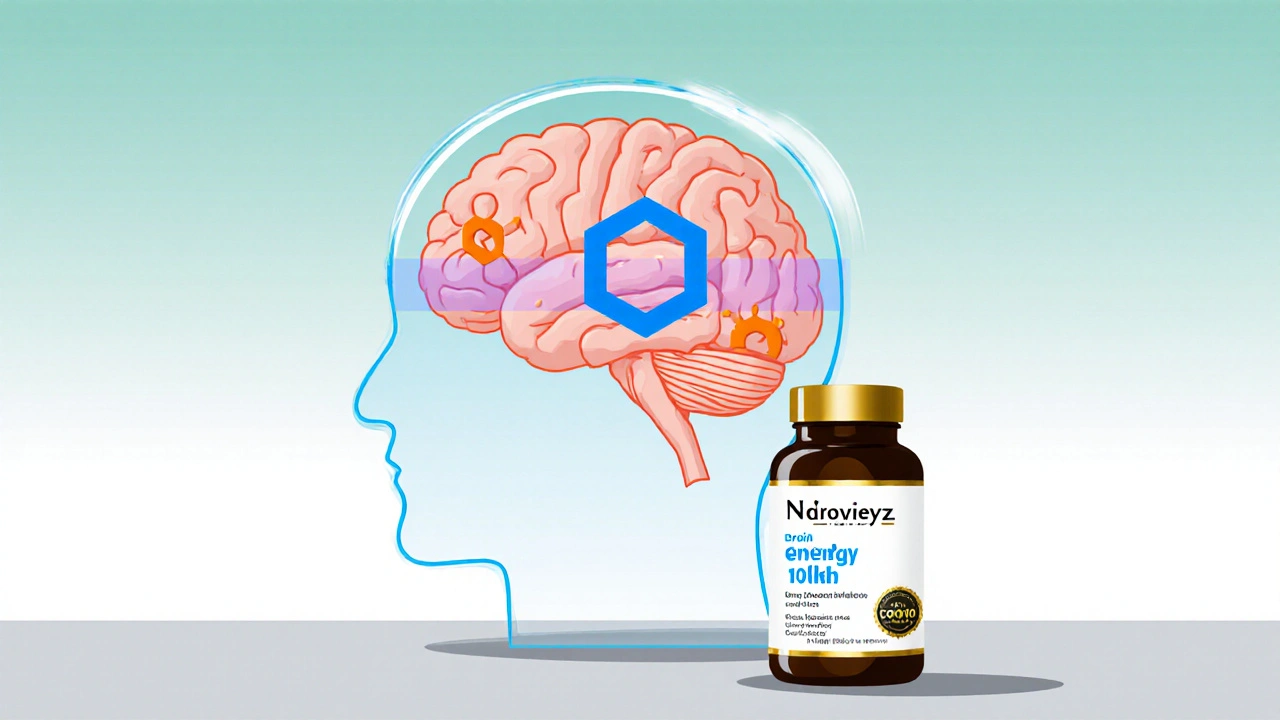Idebenone: What It Is, How It Works, and What Research Says
When you hear Idebenone, a synthetic analog of coenzyme Q10 designed to support cellular energy production and reduce oxidative stress. Also known as decylubiquinone, it's not a vitamin or herb—it's a lab-made compound that mimics how your body naturally fights cell damage. Unlike regular antioxidants like vitamin C, Idebenone works deep inside your cells, especially in the mitochondria, the tiny powerhouses that turn food into energy. When those mitochondria get worn down by age, disease, or stress, Idebenone steps in to help them keep running.
People turn to Idebenone for reasons ranging from chronic fatigue to neurodegenerative conditions. It’s often compared to CoQ10, a naturally occurring compound essential for energy production in every cell. While CoQ10 levels drop as we age, Idebenone is smaller and more easily absorbed, letting it reach brain and muscle tissue faster. That’s why some studies look at it for conditions like Friedreich’s ataxia, where mitochondrial failure leads to muscle weakness and nerve damage. It’s also been tested in early Alzheimer’s and Parkinson’s cases—not as a cure, but as a way to slow decline by protecting neurons from oxidative stress.
It’s not just for older adults. Athletes and people with long-term energy issues sometimes use it to fight fatigue. One 2018 study on patients with mitochondrial disorders showed improved physical endurance after taking Idebenone daily for months. Another trial found better cognitive scores in people with mild memory problems. But it’s not magic. Results vary. Some users feel more alert within weeks; others notice nothing. That’s because it doesn’t fix the root cause—it helps your cells cope better with the damage they’re already dealing with.
Side effects are usually mild—stomach upset, headache, or occasional rash. But because it’s not regulated like a drug in many countries, quality varies. That’s why you’ll find posts here comparing brands, dosages, and real user experiences. You’ll also see how it stacks up against other mitochondrial boosters like PQQ, alpha-lipoic acid, and NAD+ precursors. Some articles dive into its use in skin care, where its antioxidant power helps reduce signs of aging. Others look at its role in heart health, since heart muscle cells are packed with mitochondria.
What you won’t find here are wild claims. No ‘miracle cure’ headlines. Just clear, evidence-based breakdowns of what works, what doesn’t, and who might benefit. Whether you’re managing a diagnosed condition, trying to boost brain function, or just curious about next-gen supplements, this collection gives you the facts without the fluff. You’ll learn how to spot quality products, what doses studies actually used, and whether it’s worth trying based on your own health goals.
A detailed side‑by‑side comparison of Norwayz (idebenone) and top antioxidant alternatives, covering mechanisms, evidence, safety, pricing, and when to choose each.
Oct, 17 2025

